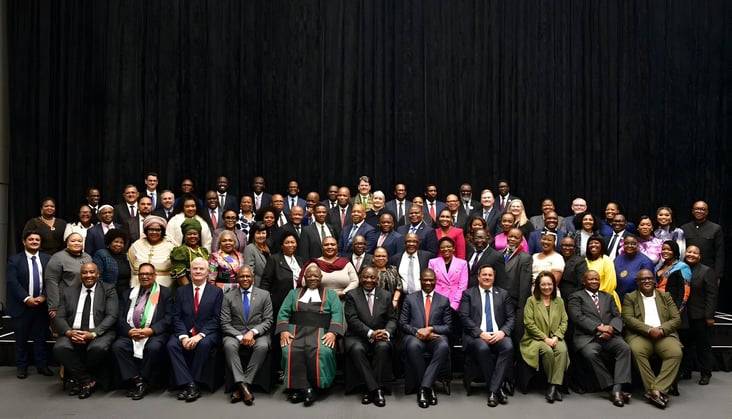
The government of national unity’s legacy will be determined by its ability to inspire hope, rebuild trust and foster public participation. (@PresidencyZA/X)
Brace yourself, South Africa, VAT is increasing by half a percentage point on 1 May.
The implications for the average household is clear: more pressure on strained budgets. What is less clear is whether this increase serves the public interest or merely papers over years of fiscal mismanagement.
There is little that can be done to halt the increase in the short term. But it is worth asking how we got here — and who brought us along.
Tax has become a political tool, wielded not for the good of the country but to mask the failings of those entrusted with the public purse.
South Africans have, in recent years, looked beyond the ANC in hope of finding new voices capable of holding the line on spending and corruption. Instead, what they have received is a bewildering capitulation and weak opposition.
The “smaller parties” such as Rise Mzansi, ActionSA and Build One South Africa have found themselves aligned with the very institution they claim to oppose. Their support for the ANC’s fiscal framework is difficult to reconcile with their promises of reform, accountability and prudent governance.
The Economic Freedom Fighters and uMkhonto weSizwe party are obvious examples of entities forged in the fires of green, black and gold. The suggestion has always lingered that the prodigal sons will return to the liberation movement. Some political analysts have no compunction in describing either as de facto ANC factions.
The purported “doomsday” alliance — as coined by Democratic Alliance (DA) leader John Steenhuisen — threatened to come to fruition after last year’s election. Instead, the government of national unity was born, a coalition headlined by cooperation between the ANC and DA — the party that had revelled in its role as official opposition for so long.
A large part of the national budget outcome can be traced to an entrenched disdain for the DA.
The desire to deny it political capital has led newer parties into the arms of the ANC, a party whose financial stewardship they criticise.
In our editorial pages, we have been highly critical of the DA’s churlish ploy to claim victory during the budget fiasco. But the political expediency demonstrated by their cabinet counterparts is arguably worse.
It also forces us to contemplate the future and calibre of democracy. Our two biggest parties are incapable of collaborating; and their challengers aren’t disrupters but opportunists eyeing their own seat at the table.
Election turnout rates are declining at an alarming rate. We know, thanks to data crunchers, that apathetic ANC voters don’t jump ship, they just stay home. Much of that has to do with the lack of a good, representative opposition.
That has put South Africa on a dangerous trajectory. To get off it, the country needs political players that live by their values, not their relationship to the ANC.



